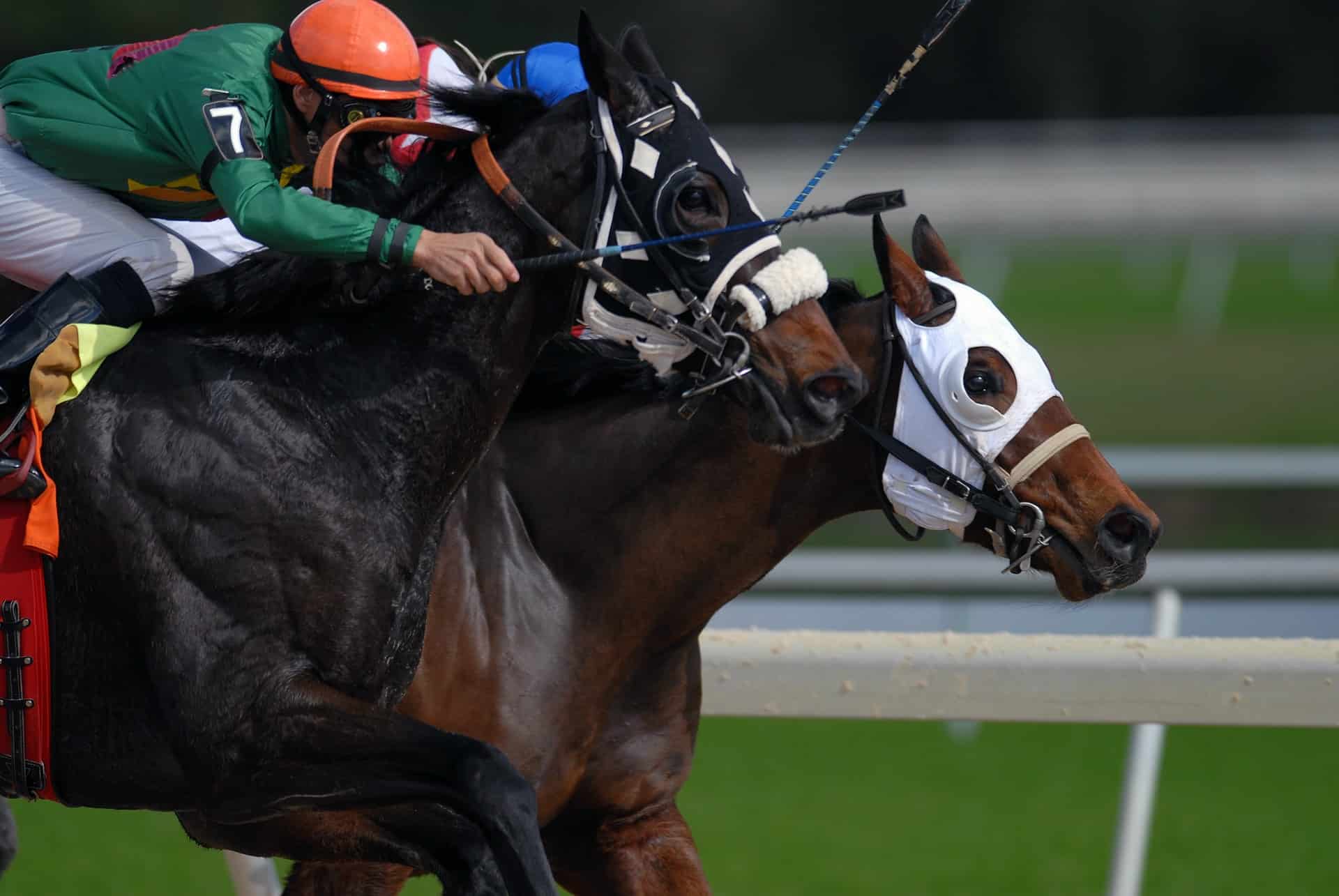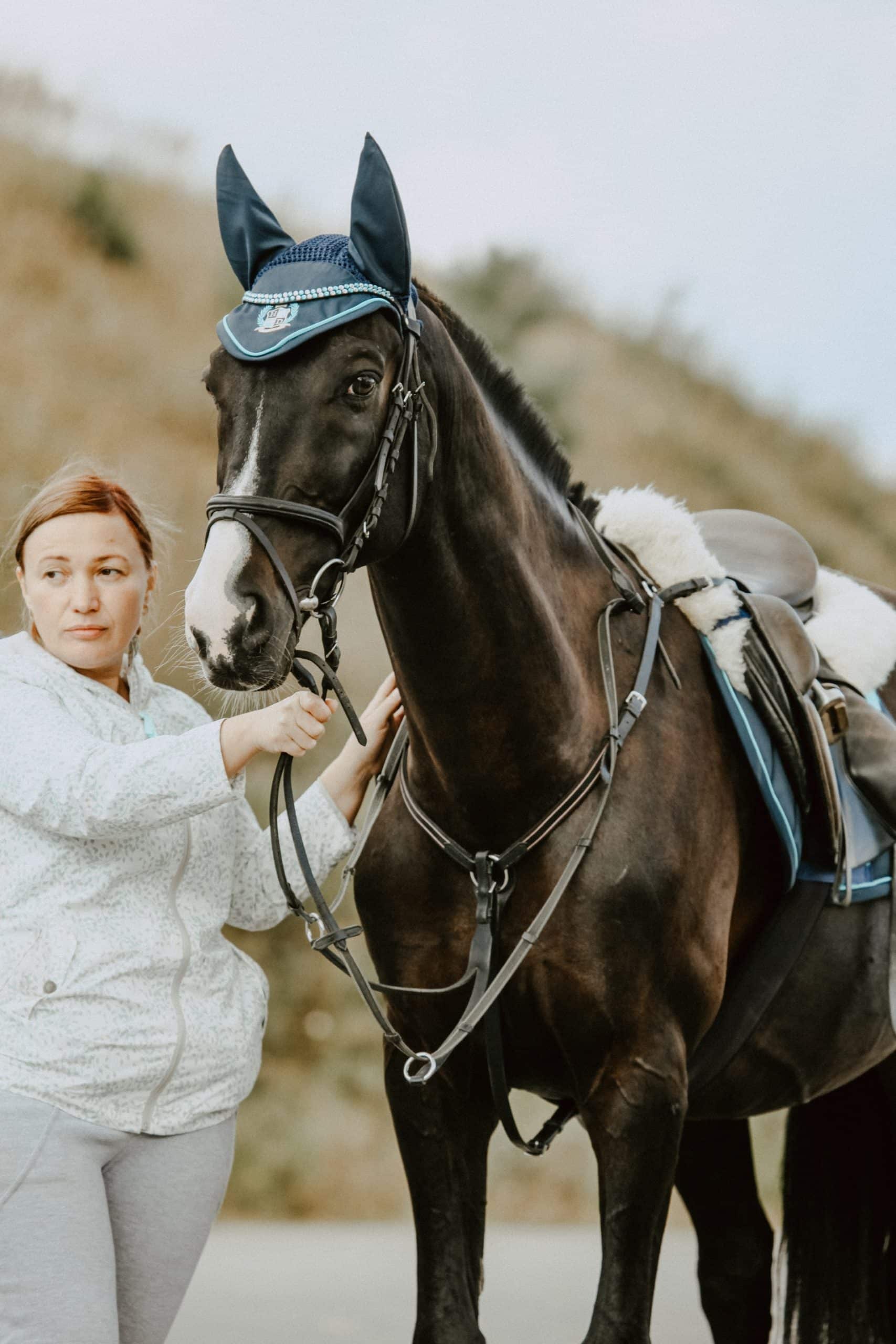In athletics, the handicap is by distance, which means slower runners start nearer to the finish line than faster runners. In golf, the handicap is the strokes against par. It aims to neutralize the outcome between lower quality golfers and high-quality golfers.
But in horse racing, the handicap is the weight a horse carries. The concept is that, as extra weight is allocated to high-established horses in a race, it’ll slow them down. In return, the lesser-quality horses who carry lighter weight tend to be more aggressive and driven.
While the idea might seem complex at first, it is somewhat simple. Plus, it exists so that all horses in the race have a fair chance of winning.
IMAGE: UNSPLASH
How It Works
Handicap races are primarily run on flats and jumps. Handicapping is firmly established on the idea that the additional weight horses carry influences their stamina and overall running speed.
A more capable horse will have to carry a heavier weight if the handicapper thinks they have a larger chance to dominate the race. Contrastingly, the less-capacity horses will carry lesser weight, granting them an ace up their sleeve.
When it comes to allocating handicap weights, the handicapper’s goal is to even out the horses’ abilities and make them finish the race on the same level. For bettors, the ability to pick out a handicapped horse racing champion depends on proficiently choosing a better horse than the handicapper. So, make sure to base your bets on reasonable handicapping skills.
Handicap Rating
As mentioned, the additional weight horses carry influences their overall speed. And this allotted weight is awarded depending on the perceived capacity of a horse. The person responsible for this job is called a handicapper.
Their job is to assess the previous performances of a horse and decide how much additional weight they must carry. Moreover, each racetrack is appointed an official rating by the horse racing executive.
The horse rating executive assigns a rating once a horse was a participant in more or less three races or has dominated a race. Observing these races allows the handicapper to see the accurate racing ability of a horse.
And after assessing a horse’s ability, they then award an official rating, which is the handicap mark as well. If the handicapper can’t decide on a horse’s ability, officials typically request an extra run.
Handicap ratings constantly change because they’re gauged each week. Whenever a horse participates in a race, the handicapper will judge its performance, increasing or decreasing the official rating.
The following are some of the reasons why horse ratings change:
- If the horse loses by a large margin in a race, the rating will decrease.
- If the horse retains its rank or runs a decent race, the rating stays the same.
- If the horse wins by a large margin in a race, the rating will increase.
Handicap Weights
When it comes to the handicap rating, each point difference is equivalent to one pound additional weight. For example, a horse with a 100 rating will need to carry 10 pounds more than its opponent with a 90 rating.
In principle, the disparity in handicap ratings and their equivalent weights provide both horses with a relative and matching likelihood to win the race. Moreover, the additional weights are placed in a cloth under the saddle.
Overall, the horse must carry the weight-cloth, the jockey, and the saddle. So, before and after each race, the jockeys must weigh in and out to make sure the horse carries the correct weight.
Penalties
Handicaps are fixed and unalterable when contenders are listed for the race, generally five days prior to the run. If a horse participates in another race and wins after being awarded an official handicap rating, officials will punish them by giving them more weight.
The date wherein the penalty comes into effect vary on the race’s guidelines. What’s more, if a horse doesn’t earn a penalty, the weight and handicap rating will stay the same. However, since the rating becomes irreversible a few days before the race, the handicapper may need to assess some contenders between the upcoming run under a penalty and their win.
Additionally, if the handicapper gives a horse a higher handicap rating than the penalty, the horse is considered ahead of the handicapper. It means that the horse must haul a heavier weight for the next race.
Final Thoughts
Handicap horse racing is one of the most popular types and most common horse racing around the world. These races are made to give a high likelihood of winning for every horse. With the even-handed and equal playing field, horse racing fanatics experience more excitement and challenge determining which horse will win the race. Make sure to bet on a well-handicapped horse to guarantee your win as well.
IMAGE: UNSPLASH
If you are interested in even more entertainment-related articles and information from us here at Bit Rebels, then we have a lot to choose from.


COMMENTS